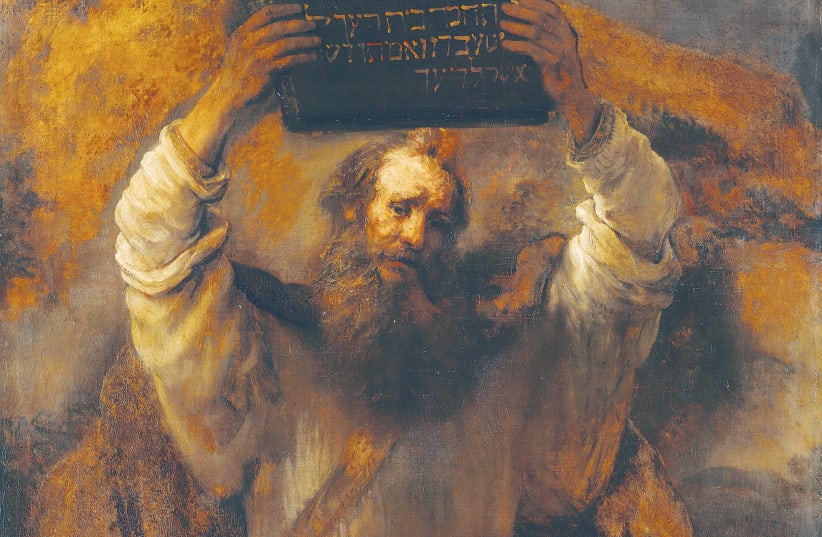In this week’s Torah portion, Vayelech, we are told (Deut. 31:22): “That day, Moses wrote down this poem and taught it to the Israelites.”
This may surprise some readers who have been taught that the entire Torah was revealed at Sinai.
According to our tradition, when exactly did Moses write the Torah?
The notion that Moses received everything on the mountain in the Book of Exodus runs into considerable problems, as our sages knew.
If Moses actually wrote the entire Torah on Sinai, did he write the section where he hit the rock and so was forbidden to enter Israel? If so, why would he not avoid hitting the rock?
Did he write of Korah’s rebellion, and if so, would he not try in advance to prevent it?
Everything that happens after Sinai seems to be an unfolding of events, not a play enacted by one who knew in advance what to do.
Ramban tells us that Moses wrote the story up to the theophany, and the laws and principles were made known to him. Gradually, over the years of wandering, says the Ramban, Moses added, just as we are told in our parasha that Moses added the song of Ha’azinu.
This explanation carries with it two very important lessons.
First is the recognition that none of us gets to know our own stories in advance. If Moses is not accorded the privilege of foreknowledge, then we certainly are not. We should appreciate the truth that all those people who tell us they know what will happen are guessing, at best. We simply do not know.
In a number of studies, even experts in various areas who have predicted the future in their fields do little better – and sometimes worse – than random chance. To quote the Harvard Business Review: “Overall, the ‘experts’ struggled to perform better than ‘dart-throwing chimps’ and were consistently less accurate than even relatively simple statistical algorithms. This was true of liberals and conservatives, and regardless of professional credentials”.
The second lesson is why we cannot accurately foretell what will happen.
Part of it is that contingencies are endless. There are too many forking paths, each of them with its own tributaries and byways.
But, more important, we cannot know the future because we help shape it. It is our own possibilities that make foreknowledge so shaky an undertaking. Judaism believes profoundly in the possibility of free will, so what happens depends in part on what we and others make happen. Since we do not have a perfect knowledge of ourselves, and certainly not of others, we do not know in advance what we will do. Every person retains the capacity to surprise himself/herself. It is part of the mystery and wonder of being human.
This lesson is vital to the Yamim Noraim (Days of Awe). When we pray, in the “Unetaneh Tokef,” “who will live and who will die,” we acknowledge that God may know, but we cannot.
The prayer continues that tefila, teshuva, tzedakah – prayer, repentance and charity – can avert the severity of the decree. It does not avert the decree – we will all die. But how we die – beloved or spurned, having lived a life of generosity or tightfistedness, a life of faith or faithlessness – these things are in our control.
Moses did not know everything that would happen; he could know only that his character would be shaped by his deeds and his words.
For each of us, the Torah of our lives is written gradually, sentence by sentence, over the course of the years. When we look backward, we can read what, as the “Unetaneh Tokef” tells us, “each hand has marked.”
In the year to come may we write goodness and kindness into the books of our lives, and be sealed, each of us, in the book of life.
The writer is Max Webb Senior Rabbi of Sinai Temple in Los Angeles and the author of David the Divided Heart. On Twitter: @rabbiwolpe

